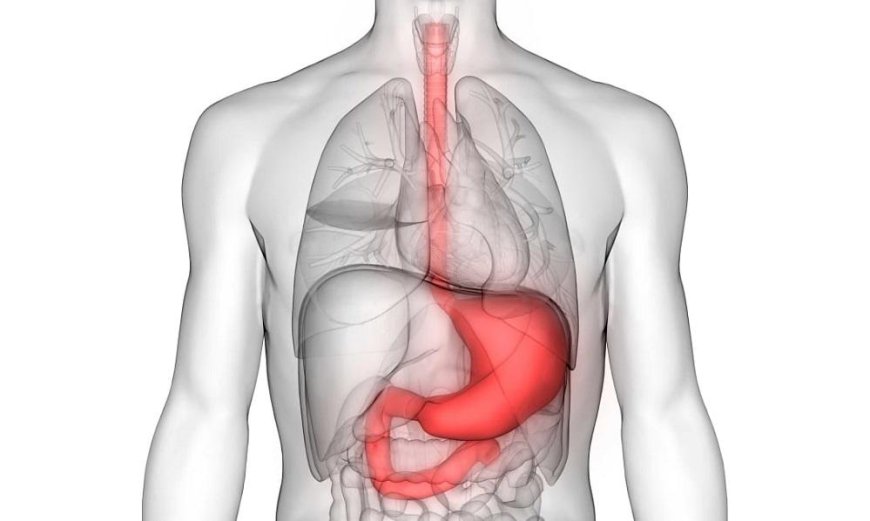How to improve the functioning of the digestive system
digestive problem, the better it will be for your physical and mental health. How to improve the functioning of the digestive system.

Is everything you eat "compatible" with your body? Learn to improve the functioning of the digestive system by choosing the right food. The sooner you solve your digestive problem, the better it will be for your physical and mental health. How to improve the functioning of the digestive system.
Is everything you eat "compatible" with your body? Learn to improve the functioning of the digestive system by choosing the right food. The sooner you solve your digestive problem, the better it will be for your physical and mental health.
You can even follow these tips together with your children! Appropriate preventive measures are also crucial.
The topic of our today's article is: how can we improve the functioning of the digestive system and generally increase the condition of our stomach, intestines and the organs cooperating with them?
The digestive system is the focal point of our body as it helps us absorb nutrients and enjoy good physical and mental health. It consists of a set of organs that break down food into smaller particles by secreting substances such as enzymes and gastric juices.
Did you know that changing the normal course of the digestive process at any stage can cause severe discomfort and even nutrient deficiency? Today we will tell you a bit more about how you can improve the functioning of the digestive system through proper nutrition.
Do you also complain about the functioning of the digestive system?
In some countries, up to 50% of the population suffers from some type of digestive disorder, and the number is still growing. Most of these problems are related to the gut because this is where the bacteria responsible for the digestive process reside.
Foods that are not digested properly in the stomach are then broken down by the bacteria in the microbiota, which can cause symptoms as varied as:
- Abdominal pain.
- Gauze and belching.
- Reflux and acidity.
- A feeling of heaviness.
- Food intolerances.
- Nausea and vomiting.
- Diarrhea or constipation.
They can also be accompanied by itchy skin, headache, mood disorders, fatigue, weight loss due to lack of appetite or, on the contrary, weight gain.
Factors influencing the functioning of the digestive system
There are many different causes that affect how the digestive system works, but the most important are:
- Frequent use of anti-inflammatory drugs and antacids.
- Bad diet.
- Smoking tobacco.
- Lack of physical activity.
As a consequence of the above factors, the quality and quantity of intestinal bacteria decreases and the secretion of hydrochloric acid and digestive enzymes is reduced. Even inflammatory and metabolic markers in the blood are altered. Therefore, by addressing the root cause, we can also reduce these symptoms.
Microbiota: The Therapeutic Goal of Digestive Health
Microbiota is a group of microorganisms (viruses, bacteria and fungi) that live mainly in the large intestine. They are responsible for the synthesis of nutrients such as vitamin K, stimulating the immune system and protecting us from infections. In addition, they influence our behavior, mood, weight, development of diabetes, etc.
Overall, there is usually a balance in the number and type of microbes. It performs the function of regulating the permeability of the intestinal walls, which in turn prevents the penetration of toxins through them. How can the microbiota be restored to its optimal state? It is enough to eat healthy!
A practical guide to improving the health of the digestive system through proper nutrition
Probiotic food
When we talk about probiotics, we mean certain specific microorganisms that live in our gut. Taking them in the form of dietary supplements is the first step to repopulating the digestive system and improving its functioning.
Although they are sold in tablet or powder form, there are also foods that have been fermented by adding probiotics to them. Their great advantage is that they resist digestion in the stomach and enter the intestine intact.
Prebiotic food
A prebiotic is a nutrient that probiotic microorganisms feed on. These include, for example, fermentable fiber, polyphenols (natural antioxidants) and healthy fats. Let's look at them one by one.
Must Read: Strabismus baby: causes, diagnosis and treatment
Fermentable fiber
It is found in fruits, vegetables, grains, tubers, legumes, and seeds. We especially recommend products such as:
- Banana, carrot, and apple.
- Leek, fennel, onion, asparagus, and artichokes.
- Oatmeal, which also helps lower cholesterol.
- Cooked and chilled brown rice that can be reheated at low temperature before consumption.
- Boiled and chilled potatoes and sweet potatoes. This is how we release starch.
- Well-cooked legumes.
- Flax seeds and chia seeds. It is best to crush them or soak them.
Polyphenols
As we mentioned earlier, these are the antioxidants present in red fruit, pure cocoa, and spices. But what about chocolate? Well, we recommend it if the cocoa content is at least 70%. Remember that dark chocolate is not synonymous with a cocoa-rich product!
drowe fats
This group includes mainly the omega-3 fatty acid present in fish (salmon, tuna, sardines, mackerel, etc.) and nuts. It is also present in extra virgin olive oil and avocado. It has anti-inflammatory properties and is the main component of cell membranes. Therefore, you should consume it every day.
In this way, you can improve the functioning of the digestive system with the right foods. Now you see how easy it is? You should also consider contacting a doctor so that they can assess your specific case and provide you with fully professional advice.
